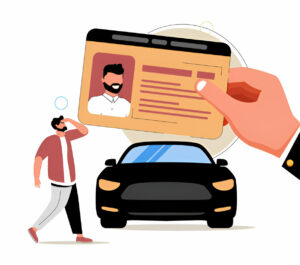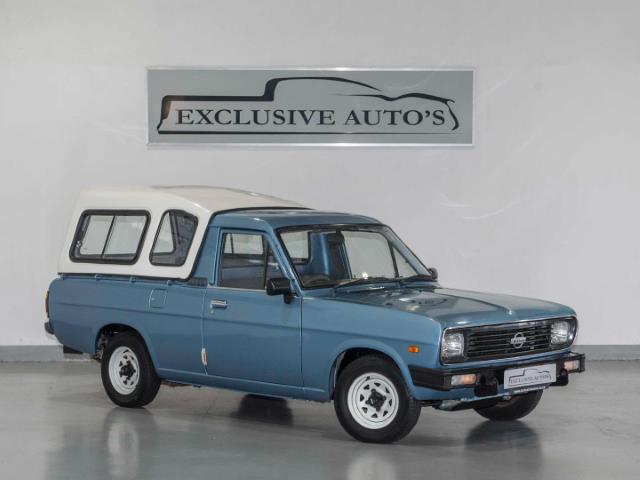Buying a car is a significant milestone for many South Africans. Whether it’s your first vehicle or an upgrade, the decision comes with various considerations, the most crucial being how to pay for it. Should you pay cash upfront or opt for financing? This question has sparked debates among car buyers for years. In this comprehensive guide, we’ll explore the pros and cons of both options, helping you make an informed decision tailored to your financial situation and needs.
Understanding the South African Car Market
The South African automotive market is dynamic and diverse, offering a wide range of vehicles from economical hatchbacks to luxury SUVs. According to the National Association of Automobile Manufacturers of South Africa (NAAMSA), new vehicle sales have shown steady growth, but used cars remain a popular choice due to their affordability.
Economic Factors Influencing Car Purchases
- Exchange Rates: Fluctuations can affect car prices, especially for imported models.
- Interest Rates: Set by the South African Reserve Bank, impacting financing costs.
- Inflation: Affects the overall cost of living and disposable income.
Understanding these factors is crucial when deciding between paying cash and financing.
The Case for Paying Cash
Paying cash for a car means purchasing the vehicle outright without any loans or financing agreements. This approach has its set of advantages and disadvantages.
Advantages of Paying Cash
1. Ownership and Peace of Mind
- Immediate Ownership: The car is yours outright, free from lender claims.
- No Debt Stress: Eliminates the burden of monthly repayments and interest.
2. Financial Savings
- No Interest Payments: Saves money that would have been spent on interest over the loan term.
- Avoiding Fees: Skips administrative or initiation fees associated with financing.
3. Negotiating Power
- Better Deals: Sellers may offer discounts for cash payments.
- Quick Transactions: Simplifies the buying process, potentially securing limited-time offers.
4. Asset Management
- Resale Flexibility: Easier to sell the car whenever you choose without settling outstanding finance.
- Equity Retention: Any value retained in the car is entirely yours.
Disadvantages of Paying Cash
1. Large Upfront Expense
- Liquidity Impact: Ties up a significant amount of cash that could be used elsewhere.
- Emergency Funds: Reduces your savings cushion for unforeseen expenses.
2. Opportunity Cost
- Investment Loss: Money spent could have been invested, potentially earning returns.
- Inflation Impact: Cash used may lose value over time due to inflation.
3. Limited Options
- Vehicle Choice: Cash buyers might settle for less expensive models due to budget constraints.
- Technology and Safety Features: May miss out on newer models with advanced features.
The Case for Financing
Financing involves taking out a loan to purchase the car, repaying the amount over time with interest. This method is common in South Africa, with various financial institutions offering tailored packages.
Advantages of Financing
1. Improved Cash Flow
- Manageable Payments: Spreads the cost over several years, easing immediate financial pressure.
- Preserving Savings: Keeps your cash reserves intact for other needs or investments.
2. Access to Better Vehicles
- Higher Purchasing Power: Enables you to afford a better model or newer car.
- Advanced Features: Access to vehicles with the latest technology and safety enhancements.
3. Building Credit History
- Credit Score Improvement: Regular payments can boost your credit rating.
- Future Financing: A good credit history aids in obtaining loans for other purposes.
4. Inflation Advantage
- Fixed Payments: With fixed interest rates, your repayments remain the same even if inflation rises.
- Asset Appreciation: Though rare with cars, certain models may hold value better over time.
Disadvantages of Financing
1. Interest and Additional Costs
- Total Cost Increase: Interest payments significantly raise the overall cost of the car.
- Hidden Fees: Includes initiation fees, service fees, and possible penalties.
2. Depreciation vs. Debt
- Negative Equity: Owing more than the car’s value if it depreciates faster than you repay the loan.
- Resale Challenges: Difficult to sell the car without settling the outstanding loan.
3. Financial Commitment
- Long-Term Obligation: Tied to monthly payments for several years.
- Repossession Risk: Missing payments can lead to the car being repossessed.
4. Complex Agreements
- Understanding Terms: Financing agreements can be complicated, with variable interest rates and balloon payments.
- Credit Requirements: Approval depends on your credit score and financial history.
Key Factors to Consider
Choosing between cash and financing isn’t a one-size-fits-all decision. Consider these critical factors:
Your Financial Health
- Savings Availability: Do you have enough savings without depleting emergency funds?
- Debt Levels: Existing debts might influence your ability to take on more.
- Income Stability: Reliable income supports financing commitments.
Interest Rates and Inflation
- Current Rates: High interest rates make financing more expensive.
- Economic Outlook: Inflation can erode purchasing power, affecting both options differently.
Depreciation of Vehicles
- Car Value Decline: New cars depreciate rapidly in the first few years.
- Resale Value: Some brands and models retain value better than others.
A Comparative Analysis
Let’s explore two scenarios to illustrate the financial impact of each option.
Scenario 1: Paying Cash
Background:
- Car Price: R200,000
- Available Savings: R250,000
- Investment Returns: Potential 6% annual return if invested elsewhere.
Analysis:
- Immediate Payment: R200,000 paid upfront.
- Remaining Savings: R50,000 for emergencies or investments.
- Opportunity Cost: Potential earnings lost by not investing the R200,000.
Opportunity Cost Calculation:
- Potential Investment: R200,000 at 6% annual return over 5 years.
- Future Value: Approximately R267,646.
- Lost Earnings: R67,646 over 5 years.
Pros:
- No debt or interest payments.
- Full ownership from day one.
Cons:
- Significant reduction in liquidity.
- Missed investment opportunities.
Scenario 2: Financing the Purchase
Background:
- Car Price: R200,000
- Loan Term: 60 months (5 years)
- Interest Rate: 11% per annum
- Deposit: R20,000
- Monthly Installment: Calculated based on remaining R180,000.
Calculations:
- Monthly Payment: Approximately R3,913.
- Total Repayment: R234,780 over 5 years.
- Total Interest Paid: R54,780.
Investment of Savings:
- Remaining Savings: R230,000 (after R20,000 deposit).
- Investment Returns: R230,000 at 6% annual return over 5 years.
- Future Value: Approximately R307,789.
- Earnings: R77,789 over 5 years.
Pros:
- Preserved capital continues to grow.
- Access to better or newer vehicle models.
Cons:
- Increased total cost due to interest.
- Long-term financial commitment.
Expert Tips for South African Car Buyers
Making the right decision requires careful planning and consideration. Here are some expert tips:
1. Assess Your Financial Situation Honestly
- Budgeting: Create a detailed budget, accounting for all expenses.
- Emergency Fund: Ensure you have at least 3-6 months’ worth of living expenses saved.
2. Consider the Total Cost of Ownership
- Insurance: Higher for financed cars as comprehensive cover is often required.
- Maintenance and Repairs: Newer cars might have warranties; older cars could incur more costs.
- Fuel Efficiency: Impacts long-term running costs.
3. Negotiate Terms and Prices
- Cash Discounts: Dealers may offer lower prices for cash payments.
- Interest Rates: Shop around and negotiate better financing rates.
4. Be Wary of Financing Traps
- Balloon Payments: Lower monthly payments but a large lump sum at the end.
- Variable Interest Rates: Payments can increase over time.
5. Understand Depreciation
- New vs. Used: New cars depreciate faster; consider nearly new or certified pre-owned vehicles.
- Resale Value: Research models that hold their value.
6. Read the Fine Print
- Contract Terms: Understand all clauses before signing.
- Penalties and Fees: Be aware of early settlement penalties or administrative fees.
7. Seek Professional Advice
- Financial Advisors: Can provide personalized guidance based on your situation.
- Consumer Resources: Utilize tools and resources available to South African consumers.
Leveraging CarDaddy.co.za for Informed Decisions
At CarDaddy.co.za, we’re committed to empowering South African car buyers with the information and tools they need.
How CarDaddy.co.za Can Help
- Price Comparisons: Instantly compare car prices across major listing sites.
- Market Insights: Determine if a car is priced fairly, helping you negotiate better deals.
- Educational Content: Access blogs and guides on car buying, financing, and ownership tips.
- User-Friendly Interface: Simplify your search by pasting listing URLs and getting instant insights.
Making the Decision Easier
By utilizing CarDaddy.co.za:
- Save Time: No need to browse multiple sites individually.
- Stay Informed: Up-to-date market data ensures you’re making decisions based on current information.
- Confidence in Negotiations: Armed with data, you can confidently discuss prices with sellers or dealers.
Conclusion
The decision between paying cash and financing a car purchase in South Africa is multifaceted, influenced by personal financial circumstances, market conditions, and individual preferences.
Paying Cash Might Be Better If:
- You have ample savings beyond the car’s cost.
- You prefer owning the car outright without monthly obligations.
- You want to avoid interest payments and additional fees.
Financing Might Be Better If:
- You prefer to keep your savings liquid for emergencies or investments.
- You want access to higher-end models with advanced features.
- You’re comfortable with manageable monthly payments and have a stable income.
Final Thoughts:
- Evaluate Your Situation: There’s no universal answer; the best option depends on your financial health and goals.
- Consider Hybrid Options: A substantial deposit can reduce loan amounts, balancing the benefits of both methods.
- Stay Informed: Use resources like CarDaddy.co.za to make data-driven decisions.
Empower Yourself:
Buying a car is not just a transaction; it’s a significant life decision that can impact your financial well-being. Take the time to assess your options thoroughly, seek professional advice if needed, and choose the path that aligns with your long-term objectives.









